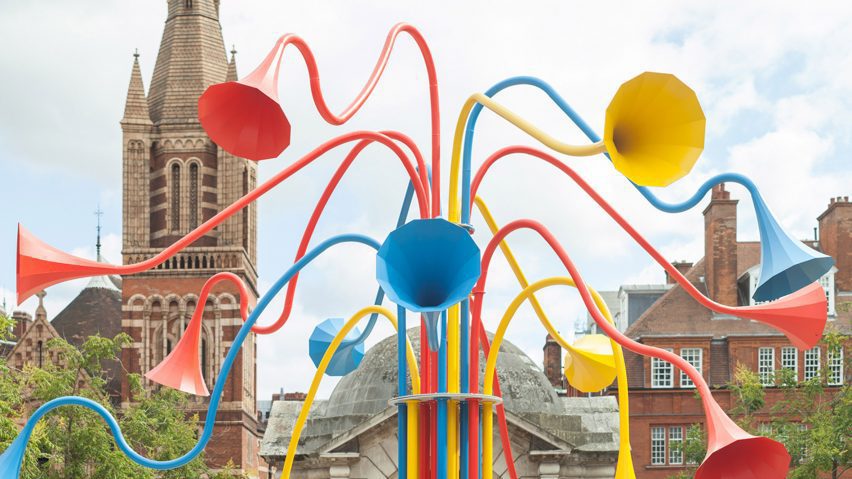
Yuri Suzuki designs Sonic Bloom to connect people with the sounds of London
Sound artist and designer Yuri Suzuki has created Sonic Bloom, an interactive installation in London featuring a cluster of colourful horn-shaped speaking tubes through which people can communicate.
Sonic Bloom is a network of red, yellow and blue horns that are arranged in a formation that resembles a blooming flower – hence the installation's name.
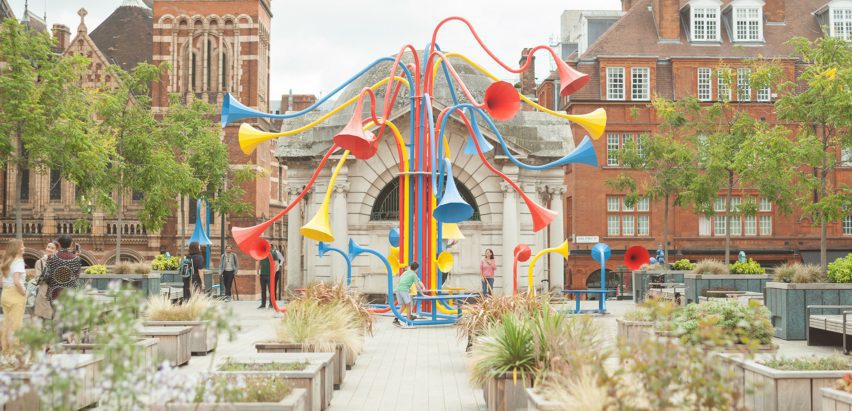
Curated by Alter-Projects, each of Sonic Bloom's horns is a speaking tube, meaning that people can communicate with each other through the horns' interconnected tubes as well as listen to the sounds that they pick up and amplify.
Some of the horns face upward to catch the general sounds of the city.
The installation opens to the public today at Brown Hart Gardens in London's Mayfair area – close to the city's Oxford Street shopping district – where it will remain for 12 months.
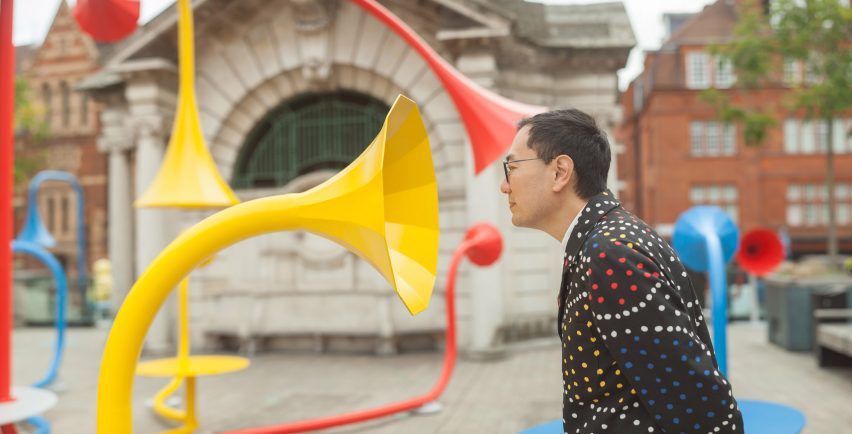
Suzuki, who is a partner at design firm Pentagram's London office, explained the thinking behind Sonic Bloom's primary colour palette, which he described as his favourite colours.
"I chose primary colours because I am dyslexic and they help with reading," the designer said. "With these clear divisions, people can easily identify the passage of sound."
"Primary colours also will fit very well into any landscape," Suzuki told Dezeen. "I have created sculptures in public realms before and primary colours do not conflict with landscapes and environments."
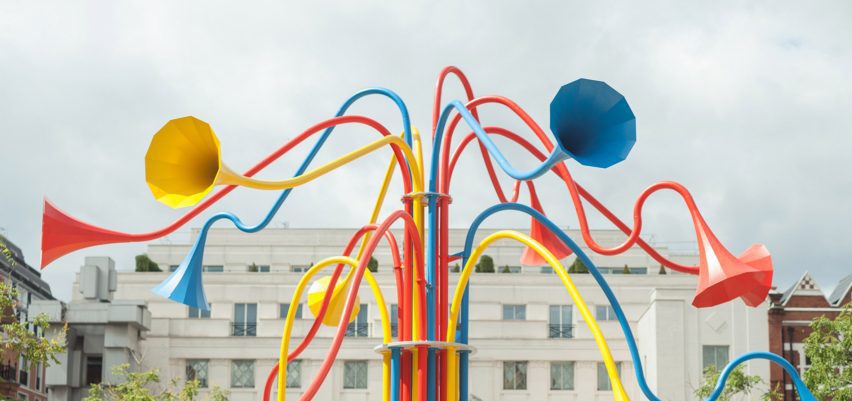
The installation's layout features seats and horns at varying levels to ensure that people of all ages are invited to interact with the sculpture. Suzuki described this as an important aspect of the work.
"I personally think just a statue standing in public realms does not give enough function to the community," the designer explained. "If people actively use it, then public art has a meaning."
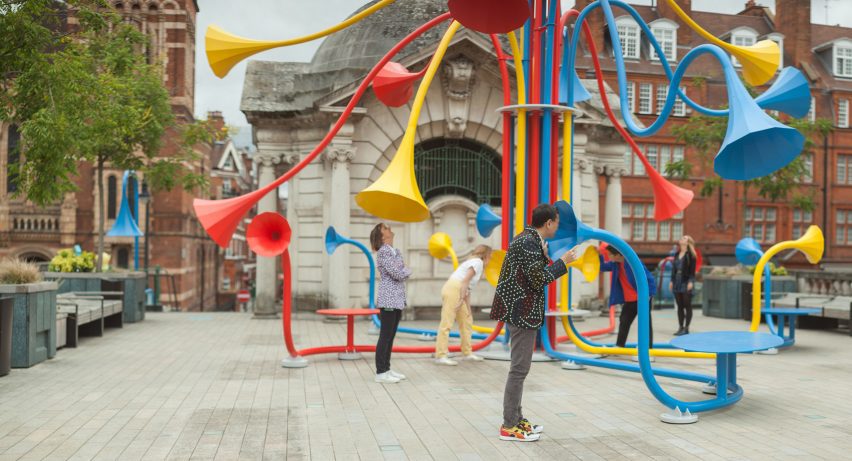
Sonic Bloom also features a digital element for those unable to travel to its site in London.
Users' voices will be recorded and transformed into flower animations, which will eventually be shared on a website for people across the world to click and listen to.
Devised before the coronavirus pandemic, Alter-Projects founder Anne-Laure Pingreoun described how the urgency of Sonic Bloom's message has been enhanced by the isolation caused by national lockdowns.
"We strongly believe that art and design can change cities, spaces and minds alike," Pingreoun explained.
"Nowadays, especially after covid, it is more important than ever that cities are filled with art, as culture is a powerful tool to regenerate areas and commerce."
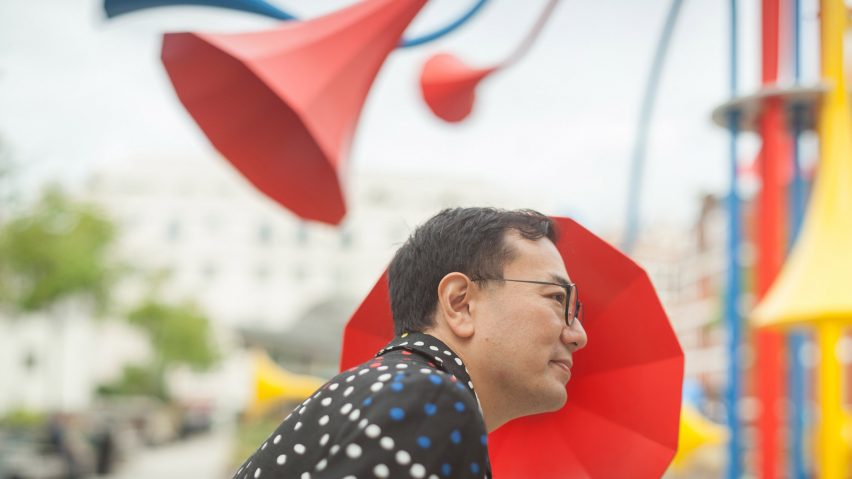
The installation was designed so that it can be dismantled and easily reassembled in other locations to avoid waste. Alter-Projects also took the coronavirus pandemic into consideration when developing the final design.
"We had security in mind during the entire process, and wanted to make sure it was as Covid-proof as possible," Pingreoun said.
"We decided to use anti-bacterial paint, made sure the seats were securely distanced, and [property group] Grosvenor will be cleaning it regularly."
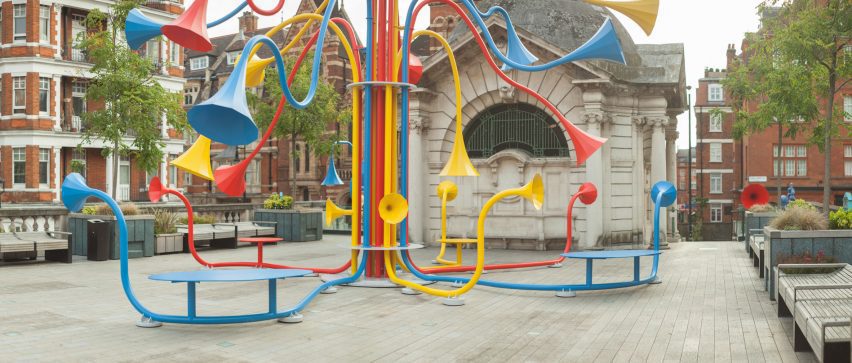
"Obviously, this sculpture could help to shorten the distance of communication between people, but at the same time, it could be positioned as a communication centre to help people slowly go back to pre-covid methods of communication," concluded Suzuki.
Suzuki is a Japanese sound artist and designer. In 2018, he created Sonic Playground, a collection of colourful sound-modifying sculptures for the High Museum of Art Atlanta in America.
Alter-Projects is a multidisciplinary curatorial agency founded by Pingreoun in 2015. The collective recently exhibited another sensory installation at the London Design Biennale.
The photography is courtesy of Alter-Projects and Yuri Suzuki.
Sonic Bloom is on show at Brown Hart Gardens in London from 23 August for 12 months. See Dezeen Events Guide for an up-to-date list of architecture and design events taking place around the world.